Well…here I am so many years on from hearing Wig Wam Bam as a kid – which literally and instantly changed my life. I mean seriously, Sweet were my first cut.
And now here I am speaking, on Zoom at least, with the last living member of that band: Andy Scott.
Who would have thought?
I wonder how we’ll start?
“People will have probably told you I’m an arsehole.”
What a start. “But I’m not you know…”
Over the next forty odd minutes, I’m left with no doubt whatsoever that Andy Scott is a gentleman – so no illusions shattered there. Amiable and with a great sense of humour. We could have kept chatting for hours. So…
Anyone that’s ever been near a radio, TV, cinema…hell-anyone alive – has likely heard Andy Scott’s work. Whether they knew it or not.
As the guitarist of British group Sweet, his band’s music from the early seventies onwards has been not only heard extensively on radio via the plethora of hits they’ve had, which include Ballroom Blitz, Love Is Like Oxygen and Fox On The Run, to barely scratch the surface, but also featured in many films and TV shows over the years. Sweet’s original run ended around 1980, but Andy Scott has managed to keep a viable and convincing version of the band afloat since the mid eighties, releasing many albums and touring the world to eager audiences, although for a time there was also a US based version of Sweet, fronted by late bassist Steve Priest, who passed away in 2020.
Starting in the late sixties but hitting their stride around 1971, after Scott, the last of three guitarists to play with the band, had settled in, and with an alliance formed with songwriting duo Mike Chapman and Nicky Chinn, Sweet began to have the hits that had thus far eluded them. Sure, these early tunes were, shall we say, on the lighter side, but flip those records over and you got a taste of who Sweet really were. The Calypso pop of CoCo would have Done Me Wrong Alright – a Deep Purple-ish bruiser as its flip, while Little Willy would have Man From Mecca‘s proto metal with a backwards, Hendrix-inspired solo.
It wouldn’t take too long for Sweet to exert their own style on subsequent records, with such killer singles as Hellraiser, Blockbuster, Teenage Rampage, and the aforementioned Ballroom Blitz all smashing the singles charts. Several mighty albums would soon follow too. Inevitably, before too long, having written the ‘B’ sides-which in most cases were equal in quality to the Chinn/Chapman penned ‘A’ sides (Rock And Roll Disgrace – stand up please!) Sweet began a run of self written hits which would see newer artists cover them to this day- Fox On The Run, Action, Lies In Your Eyes and of course Love Is Like Oxygen.
However, every up has a down, and sadly, Sweet’s started with the departure of vocalist Brian Connolly in 1979. Connolly passed away in 1997.
In 1974, when Sweet were recording the Sweet Fanny Adams album, it emerged that Brian Connolly had been the victim of a beating outside a pub, with his throat reportedly being targeted. Was this possibly the beginning of Brian’s troubles with drinking, which would eventually lead to his departure some years down the track? “OK. Listen, when I first joined the band Brian kind of took me under his wing and I went out with him a couple of times and I realised ‘I can’t go out with Brian on the town anymore’ because his intake and mine were at completely opposite ends of the spectrum. It’s when you’ve woken up in London, on a bathroom floor that you don’t recognise and there’s something in the bowl that you don’t remember parting with…(both laughing) and you start saying… ‘Oh…this is not a road I want to go down!’ And yes, we decided we would need to keep Brian on a rein, but he was the oldest, he was the organiser back then and a few years later we realised – that incident we were talking about- what was he doing on his own, without anybody with him, driving his Mercedes to a slightly sleazy pub in a satellite town outside of London, not far from where he lived, ‘cause maybe he fancied a drink… Surely he knew a publican closer to home who would keep the bar open for him without all this hassle. He goes into this place and apparently a few girls go ‘oh wow-it’s Brian Connolly’ and are all over him and when he comes outside there are a couple of guys and one of them is sitting on top of his Mercedes, and he’s told him to get off, and as he’s gone to get him off somebody from behind hits him, he goes to the ground and then they start kicking him and stuff. And the thing is, there was bruising on his collarbone and neck (rubs throat for emphasis)-and we weren’t there, we had no idea. I just remember getting a phone call from his wife saying ‘he’s in hospital, he’s got really bad damage I don’t know what the hell he was thinking’. Anyway, cut to the fact that we were about to do a tour of the UK followed by a gig with The Who. Now, my thoughts were, will he be well enough to do the Who gig? And the chances were – yes, he would have been, but to cancel ten shows in England, in the month leading up to that Who gig would have looked wrong. I suggested we reschedule them afterwards and the general consensus was no -we’re gonna have to ditch the lot. And I thought ‘This is criminal, this is terrible’”.
That Who show would certainly have been a big break. “Yes, this was our moment, our break to show people we could be more than just number one in the pop charts. And his voice was different after that. You could hear it. Luckily when we recorded Fox On The Run…it’s in a key that wasn’t that high. And then when we get to recording Give Us A Wink, it was a heavy metal album and his voice (at that stage) suited that. Much rougher, thicker and gruffer. So, yeah, it did something, and I have to say, from him being the guy who organised everything to a guy who’s now sitting in his hotel room in America for long periods you can see why alcohol becomes your friend maybe. Not mine, I was going down in New York – the streets that sold all the guitars and trying to pick up a Stratocaster for five hundred dollars you know?”
Yeah, yeah. I was curious about how that all started. “Yeah…well how many times have you heard about, usually the drummer or the lead singer, not being around the length of time that they should have been you know? I don’t know what it is but there’s a deceptive element that I don’t quite understand, sometimes making an icon or sanctifying somebody who is now gone – it doesn’t help. It’s almost like saying yeah, you pushed yourself into that position and now you’re not here and I love the fact that everybody’s hanging on to the music-but it’s like…history tells you that all these people who are no longer with us -it’s like it should be ‘here is a lesson to be learned’”.
How not to do it. “Yes”.
Regarding your upcoming tour of Australia-it’s billed as a ‘Farewell Tour’…have you decided to give it away after all these years? “No, look, some of this has come about from an interview that I did a year, year and a half ago where I said I can’t do these long tours anymore – I didn’t say I was gonna stop gigging, or doing short runs-but actual touring where you go from Scandinavia to the Balkan states to the Benelux countries, Germany, Austria, Switzerland, Portugal, Spain over a two month period. No – not gonna happen. What we do now is we fly out, we do two or three shows, we fly back, we then have a little weekend off somewhere and it may not be as cost effective for us but luckily in Europe we’re playing some decent sized venues and we have equipment in these places, I do own a couple of backlines in Germany which we can take to other places because since we left the EU it’s made things a little bit awkward. It’s all paperwork for a lot of people and I try to avoid that. I’d rather keep it simple, use equipment that we’re used to and just fly out with your personal guitar, that kind of thing. That was the plan, so we’re doing ‘Flashback Cruise’ this year out of Sydney and someone said ‘would you like to do some dates around Australia straight afterwards?’ And I thought-that’s a good enough reason, thinking, might be a couple of weeks maybe -but it’s turned into a month! And this was not on my radar, to be away for a month, y’know. But… Australia is half way around the world, we’re not gonna go and do two or three dates and fly home are we? So when it says “Farewell Tour”… it’s really Farewell-ish Tour…because I don’t know, if this goes really well I think it might be quite wonderful to come back and do some slightly bigger more targeted venues in reach of the main cities, you know?”
I wondered about that because you’ve been quite prolific with the albums over the years, having recently released Isolation Boulevard, mostly a collection of updated classic Sweet songs-and actually, some of the sounds on that album, for example the intro to Action sound identical to the original releases from almost fifty years ago-did you sample those or recreate? “Yes. What I did was I went back – and the keyboards that you’re hearing, with a little bit of fiddling, because we didn’t have a click track when we recorded Fox On The Run, but those synthesisers that you hear on Fox On The Run are the ones I played on the original recording back in 1974. So that’s why that sounds authentic as well”.
Yeah, I could hear that – I was sure you’d used the original. Now, I believe there’s to be a new album soon? Called Full Circle, right? “Yes (nodding) – we’re about finished with it now. There’s one track that we’re still mucking about with – it’s a long track and I don’t know whether to edit it down or leave it as it is. It’s the title track. And we’re using some of that as a sample when we come on stage. That thing of, the Sweet have come full circle and it’s a nice intro, it kind of points to the future rather than the past, you know. I hope people will be pleased (when they hear it), it’s a real mixed bag, it’s got a lot of that, shall we say the latter era of the band’s progressive rock thing about it but it’s also got ‘pop’ about it. All the songs have a kind of commerciality, and there are two or three of those sort of riff songs that you’re used to hearing from the Sweet you know. So, something for everybody. We’re not giving up. I’ve had a long chat with my other half and even though she worries about my health because of my prostate cancer, as long as I take care, as long as there’s somebody else there to make sure that things work out – because stress is one of the worst things that you can have with things like this. You make sure the travel days aren’t … we’ve all done it, where you travel for twenty hours and it should have taken six you know? I still wanna be around, I don’t wanna drive myself into the ground so I just think that there’s a medium ground for everything”.
Managing things properly. “Yes”.
Well, despite your illness, listening to the last release – you still sound exactly as you did fifty years ago – all your octave harmony vocals are super distinctive, clear and strong. “Thank you”.
Regarding that album, which was done during Covid, how hard was it recording in isolation? “Some of it, we were able to create a little bit of a bubble, so that a couple of the guys could come down to my studio here in Wiltshire when things slightly opened up, but at the start of the album everybody was in different locations and we’d done drum tracks which we could use and bass and things some was done down the line… all the lead vocals were done here, maybe apart from a couple. The backing vocals were all individually done in various different places. As long as everybody knows their part you can do stuff. At that point everything opened up and for the finishing touches everybody could get together as long as there wasn’t anymore than six of us and we finished it in one hit. But you know what digital recording is – you mix as you go along”.
Yes, true… Also, the guitar tones are vintage Andy Scott. “Yes! A friend told me no matter whatever guitar you throw at me I’ll tweak the amp and the guitar and it’ll always sound like me. It’ll sound like a Stratocaster or a (Gibson) 335 through a Marshall”.
Speaking of your ES 335 -that guitar is iconic (Andy’s red ES 335 – it can be seen in the Ballroom Blitz video) – I can’t imagine you would have parted with that guitar? “Well yeah, actually, it’s in a museum in Liverpool called The British Music Experience. You can find it online. I did a course there last year, Andy Scott in conversation… that kind of thing, they were expecting maybe one hundred people and one hundred and fifty showed up (laughs) more chairs! There were people almost sitting behind me on the podium. And it was fantastic. They just took the guitar and set it beside me and there were just so many people that wanted to see that guitar and have me hold it and take photographs, it was fantastic. A great evening”.
Still got the famous sticker on it? (An inverted yellow smiley face sticker that said ‘SHIT’) “Errrm…I took that sticker off, rather stupidly, in the late seventies”.
No! “Yeah…because I thought, it’s had its moment, you don’t think about these things. But I now have, I’ve found, a couple of old ones. They were given away in a magazine in England at the time and I thought ‘I like that’ – smiley face but inverted smile and I stuck it on the guitar. It was just before we went on Top Of The Pops, and I’m going on Top Of The Pops with the word ‘shit’ on my guitar and nobody noticed (laughs)”.
On those early records, were you using a Strat a lot of the time or was it the 335? “When I first joined Sweet I had two guitars, a Hohner twelve string-that I used as a nine string, and my 335. It had got to that point and I had no spare guitar. So the first thing I did was I bought a (Gibson) SG Junior that had a Gibson tremolo on it. So at least I had a spare. And the next guitar I bought was a Stratocaster. A plain, woodgrain finish. At the same time I bought a (Fender) Thinline Telecaster with an ‘F’ hole in it. So I then had those four guitars whenever we were going into the studio. The Sweet Fanny Adams album was mainly the 335, but I did use the Stratocaster on some things so whenever you hear a real wild tremolo sound, that’s the Strat. I wasn’t setting up my whole Marshall system in the studio in those days, because it wasn’t that big a studio. I was using my Vox AC40 – an upgrade from the AC30. And I also had an HH amp.
I was gonna ask you about that – I remember seeing pics of you onstage with HH amps. “Well, they did a combo for guitars, and it had pushbuttons rather than rotary knobs with low, medium and high and in some ways that circuitry was much better than the integrated knobs – you knew what you were getting, d’you know what I mean?”
Yeah, sure. “I remember talking to Marc Bolan because he used HH as well and we were sponsored by HH. Then, when we went in to record Desolation Boulevard, Mike Chapman, because he was the producer, wanted to use all the gear we used live, to try and record it in a live kind of way. Which meant whatever happens, you have to keep – there’s drums on the guitar track et cetera”.
Sound spill. “Yes. And from my point of view it never sounded as good for me as the Sweet Fanny Adams album. Saying that, when we went to Germany to record Give Us A Wink, at Musicland Studios in Munich, and we faced the drums down this metal corridor and mic’d the distance and create what we called the ‘Corridor of Power’, with all my amps set up and mics in front of every one of them and then deciding which combination to use. And the bass was in its own little sort of cupboard, but Steve (Priest, bassist) had his full rig, built by someone who was building PAs back then. He had this big bass rig, Hi Watt amps and with a bit of drive. He used his Rickenbacker but he was also using these fake Fenders he had – like the one he used on Ballroom Blitz“.
Fake Fenders? “Yeah. I remember our producer Phil (Wainman) saying, ‘Oh, you’re using a nice Fender Steve’ and he kept his mouth shut (laughter) because it wasn’t, it was an Italian made Gherson, but it looked like a Fender Jazz. And he loved those guitars and they sounded really good, when you consider a Fender would have cost many hundreds of pounds and these would have been about a hundred!”
You worked with (producer of Queen and Black Sabbath, Reinhold) Mack on that album right? He told me he enjoyed working with Sweet and that the musicianship was A1 – and that Mick (Tucker, original drummer who passed away in 2002) was an incredible drummer. “(Nodding) He wanted to produce us from that moment on, Mack, and I was very straight with him, I said this is the first album we’ve done without a producer, I’m in the chair and I’m the producer (laughs). He was very helpful, he’s the guy who cut up (edited) the intro for Action. The cellos then the synthesisers and then the band coming in. I used to come into the studio before everybody else and he was in the middle of doing some cuts, I could see there were scissors in his hand. And I went ‘um, what are you doing?’ And he said (in soft German accent) ‘would you leave me for another half an hour maybe?’ So I went off and had a coffee and when I came back he said what do you think of this? And he played me what he’d done and I went ‘that’s absolutely fantastic! It makes sense’ He said he heard this and that and decided we weren’t making the best of that intro and he was right.
He’s great. “Yeah.Really”.
One of the things that stood out to me, even as kid, was that I’d listen to the single ‘A’ sides and love the songs, and see that the credits were Chinn/Chapman, but then I’d flip the records over and hear songs like Burning and Rock and Roll Disgrace, these equally great songs and see the writing credits were Sweet. I didn’t know how it worked but the ‘B’ sides were always so striking. And with most other bands the ‘A’ side was the thing, with, usually, not much going on with the flip sides. Did you have something to prove with those? “Well, the thing about the ‘B’ sides was we were trying to push our own boundaries, never mind writing songs. So a lot of it didn’t involve too much songwriting; it was how Mick wanted to play the drums, how Steve wanted to play the bass or how I wanted to put a riff together, turn the tape over and play the solo backwards, you know, we were just looking to push the boundaries. If I bought a new effects pedal it would be on the ‘B’ side. Absolutely. But we would still wanna do the kind of things that you would recognise as Sweet like, put the harmonies in… it still had to be organised, couldn’t be organised chaos, still had to have some structure. But we were only ever given, at the end of a session, half an hour, forty five minutes to record our bit (the ‘B’ side). So we had to have it all in place and sometimes -like when we were recording a backing track – I can’t remember the song but we kind of lost our way and Mick brought us back in. Somehow. And it sounded great so we just left it. There was a moment there where Steve’s thumping away and I’ve let a guitar chord hang and Mick could see what was going on and he turned and looked at us and we were back in where we should have been”.
That’s a sign of great musicians and chemistry. “Yeah, well, that’s the way we’ve always done it, except for Isolation Boulevard, and a bit of the previous record, Sweetlife because we didn’t have the facility at the home studio to have everyone in together but otherwise that’s the way. All in playing together. And the new album we’ve just done, we did it at Peter Gabriel‘s studio, Real World, which is just down the road from here, about thirty minutes away. So all the tracks have been laid down together and then finished at my studio at home here”.
When you guys were doing this stuff, were Chinn and Chapman giving you space, taking off and letting you do it or getting involved? Was Phil Wainman around? “No, Chinn and Chapman hardly got involved with the ‘B’ sides, it was Phil Wainman the producer who used to say ‘Right…’ actually I remember once when we did CoCo (1971) there was no time left to do a ‘B’ side at the studio, so he took us to a… it was like a three track or four track studio in Denmark Street, London, where the Rolling Stones used to record (in the early sixties) where they did things like Satisfaction and It’s All Over Now. So we went in there, where the studio is downstairs and the control room is upstairs and you can’t see people and recorded Done Me Wrong Alright. He’d booked an hour. I mean this is how tight it used to be – ‘what, an hour ?!’ (Laughter) So we got the sounds, got the backing track, Brian’s now singing his lead vocal while I’m doing the guitar solo, he’s doing his double track while we’re doing our second track of backing vocals and then there was a like a final mix down with any final echos and stuff and it sounds great! All done the old way like you would have done it in the sixties you know?”
Lastly, we know you’ve had health issues with prostate cancer, you seem fine, are you clear now? “Yeah, I’ve set up a fundraising, crowdfunding thing, ‘Andy’s Birthday Wish’ ‘cos I’m turning seventy five at the end of the month (June 30) and it’s all to go to the place in Bristol who looked after me – the cancer unit. They’ve got a new robotics and R&D department that they’re setting up which will help people with prostate cancer especially. And I’ve got people already filling it with donations-and I haven’t even had me birthday yet! So I’m hoping to raise a pile of money. But as I’ve been saying – the awareness of people – doesn’t matter what age. They say once you hit your forties or fifties you should be aware of things. If you’re feeling a bit ‘errrrr’ (makes tired face) the sooner you get tested, the better. The chances are… like me, I’m fifteen years in with my prostate cancer, which doesn’t mean to say it’s perfect but I’m still here and I’m still able to do what I wanna do”.
Sweet will play the following dates in November:
Friday 8th Melbourne, Palms At Crown
Sunday 10th Airlie Beach Music Festival
Wednesday 13th Tweed Heads, Twin Towns
Thursday 14th Toowoomba, The Empire Theatre
Saturday 16th Brisbane, Princess Theatre
Monday 18th Adelaide, The Gov
Thursday 21st Sydney, Factory Theatre
Friday 22nd Penrith, Penrith Panthers
Saturday 23rd Thirroul, Anitas Theatre
To donate to Andy’s Birthday wish, go HERE


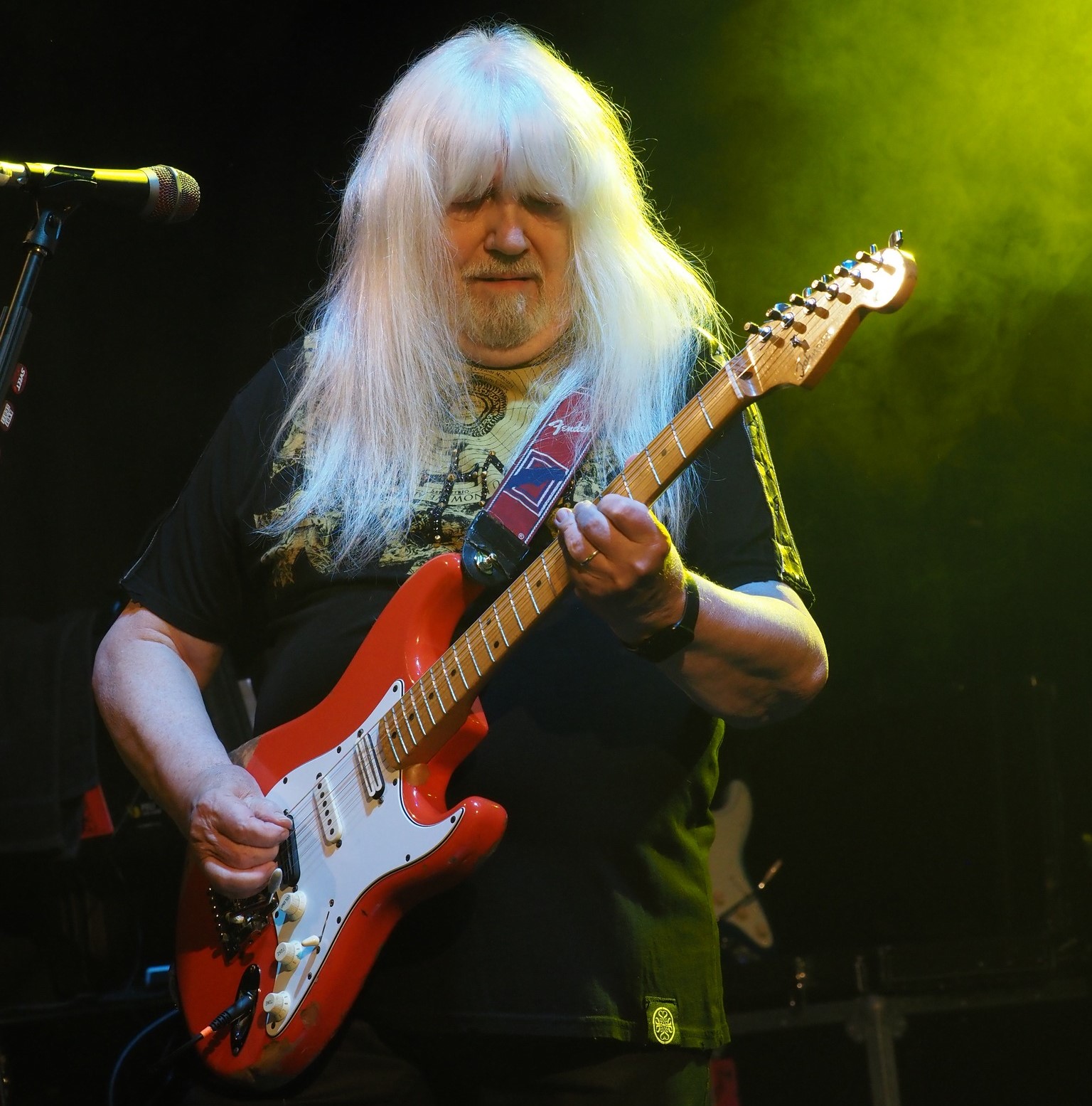
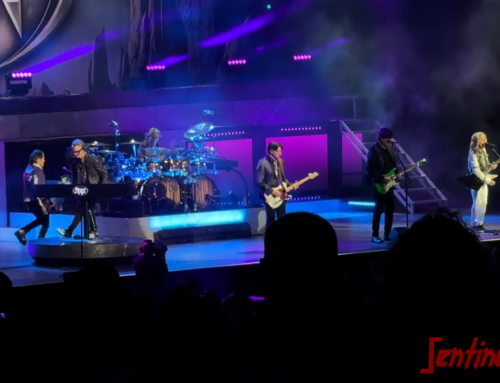
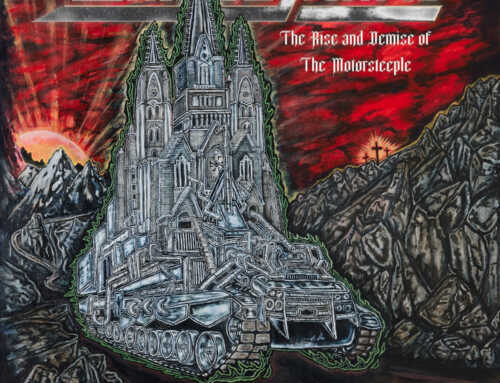
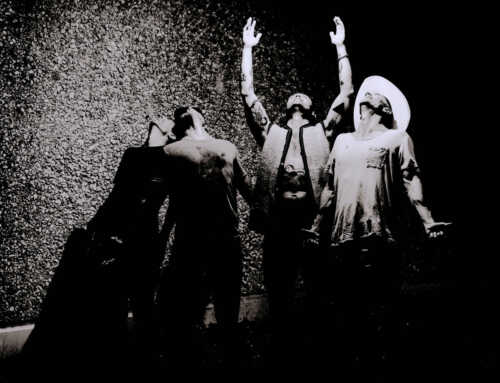
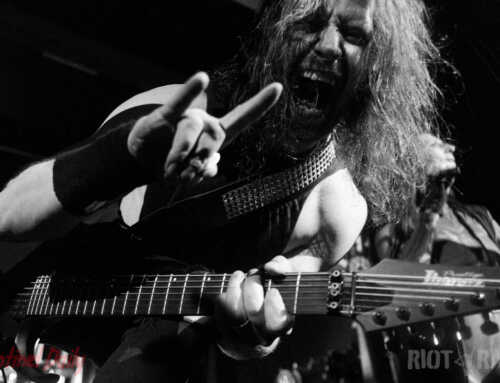

Leave A Comment